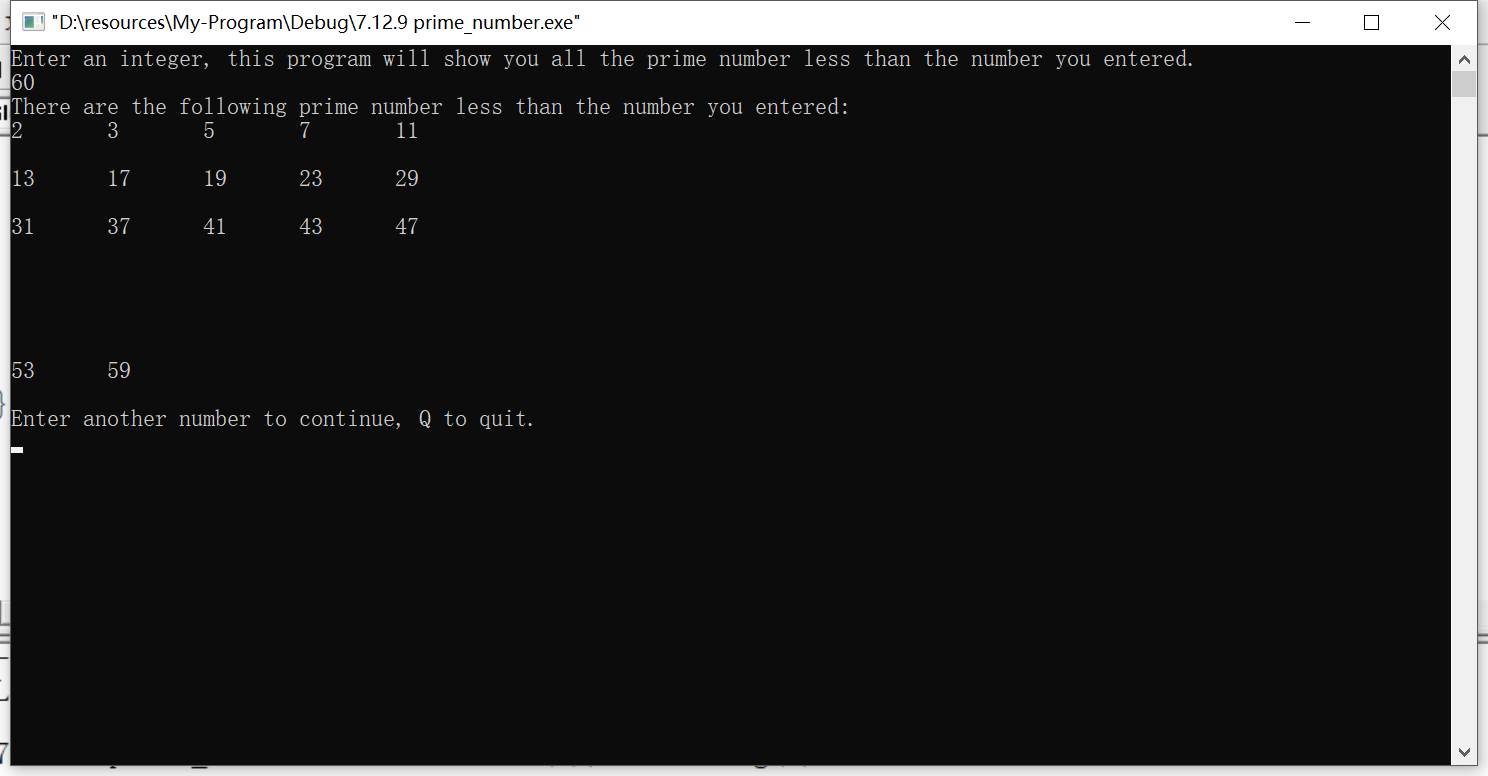请问C语言中多余的空行是怎么回事呀?是编译器的问题吗?
有一个C语言的编程练习,是输入正整数,然后显示所有小于该数的质数。
我写出来是这样的
#include <stdio.h>
int check_prime(long unsigned checking_num);
int main(void)
{
long unsigned entered_num;
long unsigned checking_num;
int count = 0;
printf("Enter an integer, this program will show you all the prime number less than the number you entered.\n");
while (scanf("%lu", &entered_num) == 1)
{
printf("There are the following prime number less than the number you entered:\n");
for (checking_num = 2,count = 0; checking_num < entered_num; checking_num++)
{
if (check_prime(checking_num) == 1)
{
printf("%lu\t", checking_num);
count++;
}
if (count % 5 == 0)
printf("\n");
}
printf("\n");
if (count == 0)
printf("There is no prime number less than the number you entered in.\n");
printf("\nEnter another number to continue, Q to quit.\n");
}
return 0;
}
int check_prime(long unsigned checking_num)
{
long unsigned div;
int isprime;
for (div = 2, isprime = 1; div*div <= checking_num; div++)
{
if ( checking_num % div == 0)
isprime = 0;
}
return isprime;
}
其中有一个每输出5个质数就输出一个换行,但是不知道为什么总会多出来很多空行,截图如下
请大佬帮忙解决一下...
原因:程序有一个bug,以第一行举例,你运行到第五个素数时,下一个数为12同时count为5,此时if(素数)判断为false,往下执行if(count)语句为true,进入执行换行
解决方法:把判断count的if语句放在前面的if素数语句里面
望采纳
print里的 \t 制表符 自动后移一个tab的位置 去掉就ok
已测试,望采纳:
#include <stdio.h>
int check_prime(long unsigned checking_num);
int main(void)
{
long unsigned entered_num;
long unsigned checking_num;
int count = 0;
printf("Enter an integer, this program will show you all the prime number less than the number you entered.\n");
while (scanf("%lu", &entered_num) == 1)
{
printf("There are the following prime number less than the number you entered:\n");
for (checking_num = 2,count = 0; checking_num < entered_num; checking_num++)
{
if (check_prime(checking_num) == 1)
{
printf("%lu\t", checking_num);
count++;
if (count % 5 == 0) //位置改了一下
printf("\n");
}
}
printf("\n");
if (count == 0)
printf("There is no prime number less than the number you entered in.\n");
printf("\nEnter another number to continue, Q to quit.\n");
}
return 0;
}
int check_prime(long unsigned checking_num)
{
long unsigned div;
int isprime;
for (div = 2, isprime = 1; div*div <= checking_num; div++)
{
if ( checking_num % div == 0)
isprime = 0;
}
return isprime;
}